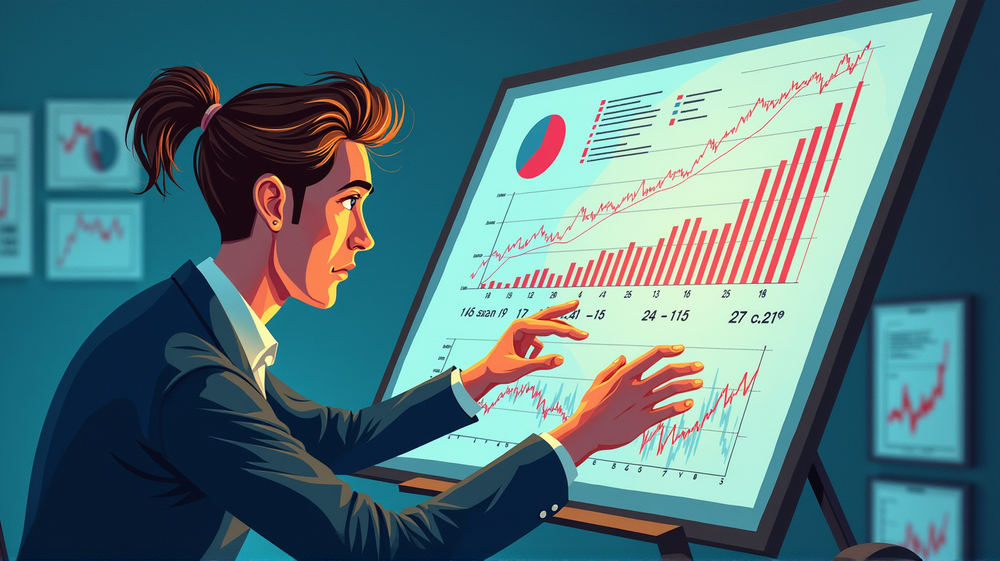High Recession Risk Lingers Despite Trump's Tariff Pivot
The prospects of a recession continue to loom over the US economy, despite recent efforts by former President Donald Trump to mitigate potential damage. In a move that dominated headlines, Trump announced a significant change in the US tariff strategy: a 90-day pause on certain international tariffs combined with a sharp increase on Chinese imports. The strategic shift aimed to stabilize the economy, prompting a cautious optimism amongst some market observers.
A Masked Economic Malady
Economists from prestigious institutions like Goldman Sachs and Morgan Stanley express lingering skepticism. They predict a marked slowdown in economic growth, estimating GDP to hover between 0.1 and 0.6% in 2025. This cautious outlook persists even as the stock market experiences temporary upswings following Trump’s daring announcements.
The Tariff Tango
Wall Street experts caution that the dance around tariffs could leave the US economy out of step, as changes are unlikely to significantly reduce the already high average tariff rate on imports. According to Bloomberg Economics, the post-announcement effective average tariff still hovers at a lofty 26.25%, only slightly down from previous levels, underscoring persistent economic vulnerability.
Unemployment and Inflation in Focus
In parallel with these concerns, Morgan Stanley foresees unemployment creeping up to 5% while inflation is anticipated to rise. President of the Federal Reserve Bank of New York, John Williams, aligns with this view, projecting GDP growth to slow significantly, falling below 1%.
Recession Remains a Playful Specter
Despite the uncertainty, hope isn’t entirely dashed. “Rather than signaling a definitive downturn, the current economic indicators suggest we’re at a pivotal point,” remarked BMO Financial Group’s chief economist, Douglas Porter. The provocative changes by Trump invite varied interpretations, with some experts like JPMorgan Chase’s Michael Feroli examining the possibility of revisiting recession forecasts.
A Global Perspective
Globally, these tariff adjustments and changes in economic dynamics are being closely observed, as they could have ripple effects on international markets. Financial leaders around the world, including those from BNP Paribas and RBC Capital Markets, eagerly await how these developments unfold in an interconnected economy.
According to The Business Times, this economic dance leaves the door open for nuanced interpretations and strategies. As financial experts continue to navigate this uncertain terrain, one question remains clear: Can a balance be struck that fosters sustainable growth amid fluctuating global trade relations?




